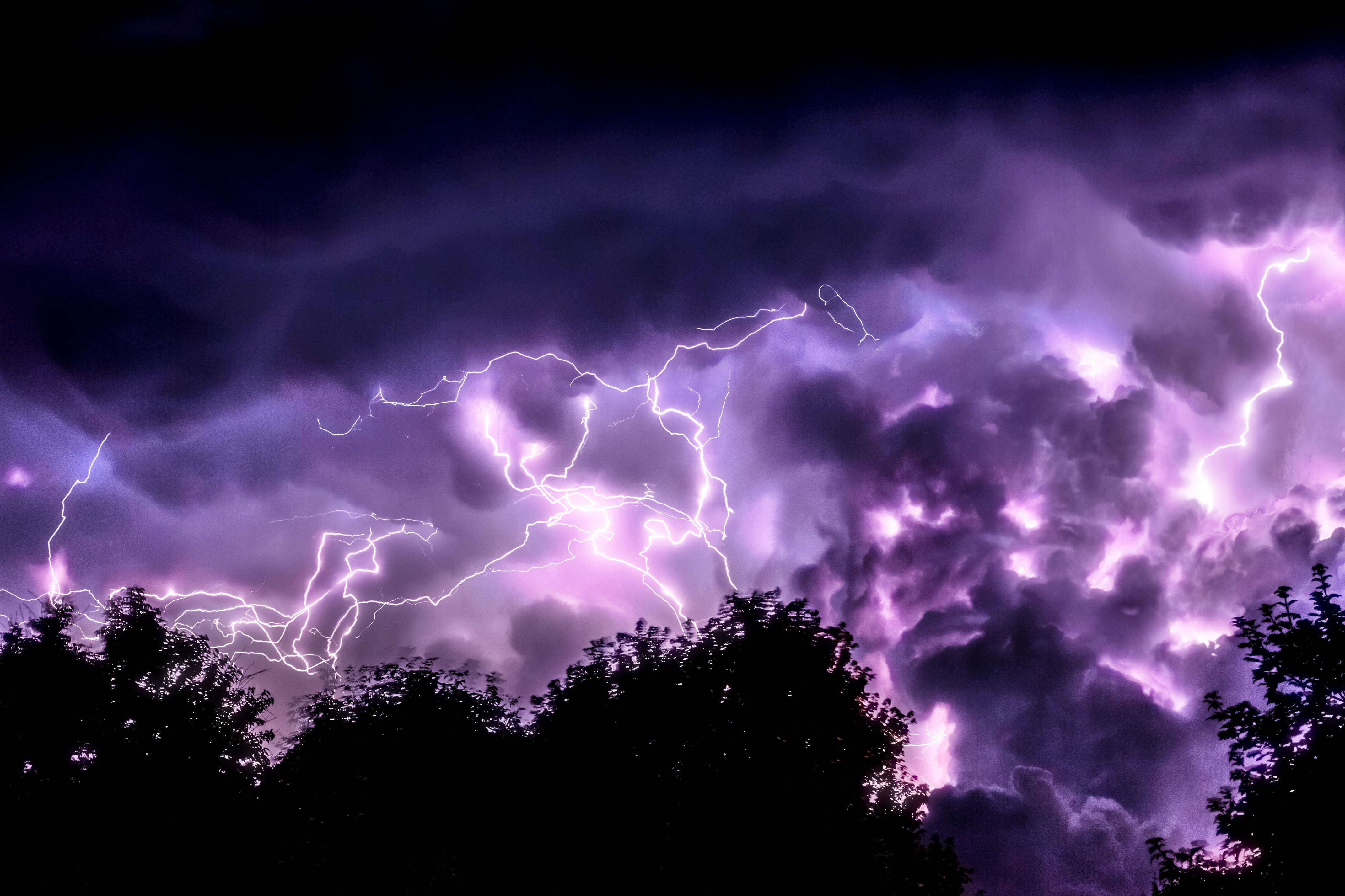10 Tips to Help a Child with Weather Anxiety

Almost four years have passed since Hurricane Harvey pummeled Texas’ coast, causing widespread devastation. Homes were destroyed by flooding, families were displaced, jobs were affected, and our city was overwhelmed by a sudden mental health crisis. Four months post-Harvey, UTHealth conducted a survey of Harris County, which found that 18% of residents showed signs of serious psychological distress (UTHealth, 2018). The psychological impact of Harvey is still felt today by adults and children who experienced trauma or loss during the storm and by others who simply witnessed the devastation.
Hurricane season is once again upon us, and the threat of severe weather events this time of year can bring back those feelings of fear and anxiety that many of us endured four years ago. Children may be especially prone to these feelings. While it is developmentally appropriate for young children to have some anxiety when the weather is bad, children who have been exposed to a devastating natural disaster are more prone to depression, anxiety, and post-traumatic stress disorder. Many children experience a quick reduction in symptoms following the disaster, but some experience more chronic mental health issues. Parents can help children who continue to experience weather anxiety by understanding our normal biological response to scary events and help children learn to cope with these physical and emotional reactions.
The human body is biologically primed to react to real or perceived threats to life. When our distant ancestors encountered a hungry lion, they didn’t have time to sit down and think through their best course of action. Their bodies reacted immediately and instinctually in order to avoid a lion attack. Their best chance of survival was to either run away from the lion or attempt to kill the lion before it could kill them, so their bodies released a burst of energy, rapidly increasing their heart rates, releasing stress hormones, and tightening their muscles which gave them the physical ability to run away or fight. This automatic response to a life-threatening situation is known as the “fight or flight” response.
A child who has lived through a natural disaster probably experienced this this “fight or flight” response during the disaster and may still experience it when the weather takes a turn for the worse. They may begin shaking and sweating, their breathing may become shallow, their heart rate may quicken, and they may have difficulty staying still. For these kids, bad weather equals danger and their bodies prepare to run or fight. Unfortunately, we can’t outrun the weather and we certainly can’t fight it. The weather is an unpredictable and uncontrollable force, two factors which make it all the more scary for many children. These 10 tips offer parents or guardians some guidance about how to help children cope with weather anxiety.
- Help your child manage obsessive behaviors such as repeatedly checking the weather forecast.
- Talk to your child about their fears when they (and the weather) are calm. Help them to identify and name the emotions they feel.
- Teach your child as much as you can about the weather. What is thunder? What causes lightening? How does a hurricane form? Removing the mystery and clearing up their misconceptions can make weather less scary.
- Acknowledge your child’s feelings, but don’t overreact to them.
- Practice grounding exercises. Your child can return to the present moment if they become overwhelmed by their panicked thoughts by using grounding exercises. Ask your child to notice five things they can see, smell, hear, touch, and taste in the present moment.
- Replace scary memories with positive ones. Make storms a time to do something fun together such as play games or watch a movie. This may give storms a more positive association.
- Practice coping skills such as deep breathing or meditation together during a storm. Practicing together will give them confidence to use these skills to self-soothe if you’re not available during a storm.
- Prevent kids from watching news coverage of storms or hurricanes. News coverage of weather events is often scary because they tend to show the very worst parts of storms. Information about big storms is best coming directly from their parent or guardian.
- Avoid scary words such as “hurricane” and “flood” with very young kids. Instead, use more developmentally appropriate words like “strong winds” and “too much water”.
- Most importantly, remind them that they are safe. Talk to your child about safety measures you have in place for big storms and bad weather and remind them that you will do everything in your power to keep them safe.
If your child’s weather anxiety is affecting their daily functioning and you notice that they avoid leaving the house when it’s raining, have bad nightmares about storms, or trouble sleeping, it may be time to reach out for help from a therapist. Through therapy, children can process traumatic weather events and learn skills to cope with weather anxiety.
References
Health and Recovery in the New Year: A County-Wide Snapshot, Institute for
Health Policy, UTHealth School of Public Health, 2018.
Written by: Melanie Phillips, LCSW-S